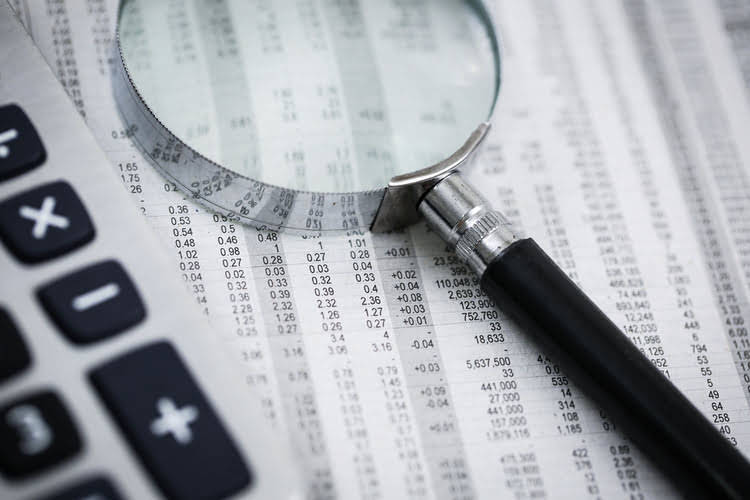Accounting Technology & Modern Accounting : An Ultimate Guide

Accounting technology, not just AI, should have extremely high encryption standards to protect sensitive data both in transit and at rest. This means that even if data is intercepted, it remains unreadable without the proper new accounting technology decryption key. While some firm owners have fully embraced automation, others are still on the fence about this transformation.

Innovative Tech Transforming Accounting Practices
- Many of the biggest accounting trends have to do with workplace flexibility and remote options.
- Spurred by concerns about a fragile economy, businesses want to be sure that they aren’t overpaying.
- Analytics assist in assessing risk, allowing accountants to predict potential outcomes of business decisions and mitigate risks effectively.
- Also, they struggled to strike a balance between profitability and responsible, sustainable practices.
- Not only does it make accounting more efficient but also drastically reduces the chances of human error.
- Doing so sets up your accounting firm for enhanced efficiency and seamless integration for automated tax preparation and planning.
In the evolving field of accounting, continuous training and skill development are crucial. Accountants must expand their expertise beyond traditional bookkeeping to include data analytics and financial modeling. Similarly, understanding technologies like blockchain and AI can provide a competitive edge. Sophisticated data analytics tools further enhance reporting accuracy by identifying anomalies and trends that may indicate discrepancies. Predictive analytics allows organizations to anticipate potential reporting issues and address them proactively, improving the reliability of financial reports and supporting strategic decision-making. Accounting software products are also starting to create AI add-ons to their respective packages.

Cloud-based solutions drive collaboration

Contact us today to achieve financial efficiency, reduce operational costs, and focus on strategic growth. The integration of cloud computing in accounting represents the latest evolution in accounting software platforms. Cloud-based accounting solutions leverage the power of the internet to deliver accounting functionality and data storage over the cloud, eliminating the need for on-premises servers and infrastructure. Computerized accounting systems automate repetitive tasks such as data entry, reconciliation, and reporting, reducing the time and effort required to perform these functions. With the click of a button, accounting professionals can generate financial statements, process transactions, and analyze data in a fraction of the time it would take using manual methods.
- Changes in financial reporting can affect taxable income, necessitating adjustments in tax planning strategies.
- Since the inception of ChatGPT in 2022, nearly every business under the sun has been itching to add generative AI technology to its system, and accounting has been no different.
- Payroll computations and accounts receivable/payable management were computers’ original data processing jobs.
- There is a growing recognition that using emerging technology is essential for staying relevant and competitive.
- As firms towards the future, the opportunities are boundless, and the future of accounting shines bright with the promise of AI.
- Generative AI programs like ChatGPT, CoPilot and Gemini are revolutionizing the industry by providing accountants with a tool capable of automating routine tasks.
- More accounting firms will adopt this trend in 2025 and prepare their tools, systems, and processes for a productive remote working environment.
Accounting Software
No wonder 86% of accountants believe using accounting technology will drive business growth. Accounting apps, software and other innovative tools offer many benefits for accountants. In addition, data analytics provides deeper insights into customer behavior and market trends. By analyzing customer data, businesses can tailor their offerings http://weblives.biz/2021/06/bookkeeping-for-interior-designers-estimated-costs/ to meet specific needs, improving satisfaction and loyalty. Metrics such as customer lifetime value and churn rate help evaluate long-term profitability, while market basket analysis identifies purchasing patterns to refine product mix and pricing strategies. Data analytics is transforming financial decision-making by allowing accountants to leverage vast datasets to uncover patterns and insights.

Modernizing Accounting: A Roadmap for Future Practices

The difference between finance and accounting has always overlapped, but as the accounting field becomes more focused on data analytics, more accountants are moving into advisory positions. In addition, accounting technology has unearned revenue improved, so accountants can give their clients more accurate information. Software applications with advanced technology help generate financial analysis reports in a single click, assisting in effective decision-making. In addition, all the data can be backed up in cloud storage, making it easier to recover during losses. Take advantage of various technological tools to enhance your critical thinking skills in accounting tasks.
Finance leaders are crushing financial close—with AI
Likewise, we suggest faulty beliefs about technology, such as the belief that “this technology will solve the problem correctly” limit the effective use of technology. Thus, it is imperative, in our view, to develop and apply higher-level critical thinking skills when using technology to solve problems. In summary, the progression of accounting technology beyond financial statements is evidence of the profound impact that technology has had on the accounting field. Manual bookkeeping methods are necessary to suit businesses experiencing rapid growth or expansion. As transaction volumes increased, the complexity of maintaining manual records also escalated, making it challenging to keep pace with the demands of a growing business.






